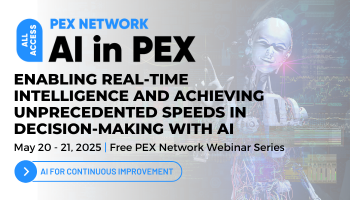AI-exposed sectors see five-fold labor productivity gains
PwC’s 2024 AI Jobs Barometer takes a deep dive into how AI is transforming the world of work and making people/businesses more productive
Add bookmark
Artificial intelligence (AI) is having a transformative impact on many elements of modern operational and process excellence. From streamlining workflows and automating tasks to analyzing complex data and providing insights to support decision-making, AI’s growing role in the modern business landscape is undeniable.
PwC recently published the 2024 AI Jobs Barometer, a deep dive into how AI is transforming the world of work and making people/businesses more productive, along with changing what it takes for workers to succeed. The research analyzed more than half a billion job adverts across Europe, North America and Asia.
A key finding is that the sectors more exposed to AI (which means that AI can readily be used for some tasks) are experiencing almost five-fold greater labor productivity growth. Meanwhile, jobs that require AI skills carry up to a 25 percent wage premium in some markets, with a higher skills change (25 percent) in AI-exposed occupations. Knowledge work sectors (financial services, professional services and information and communication) are seeing the most rapid growth in the share of roles requiring AI skills.
Don't miss any news, updates or insider tips from PEX Network by getting them delivered to your inbox. Sign up to our newsletter and join our community of experts.
AI improving levels of productivity and efficiency
“Despite common fears that AI and generative AI are replacing roles across industries and verticals, its key role as discussed in this report will be to act as a copilot to human-centric roles and improve levels of productivity and efficiency across organizations,” Ganesh Sankaralingam, analytics leader in data science, data engineering and business analytics practice at LatentView Analytics, tells PEX Network.
In a typical digital native organization, the primary function of AI would be completing manual and tedious tasks that have historically been left to individuals on business teams who should otherwise be talking to customers and understanding key pain points with their products and services, Sankaralingam says.
“Digital native organizations leverage extremely high amounts of data to develop strategic analyses and insights to develop products and services which they then offer to their clients, customers and internal teams. This analysis requires data collection and organization at scale that are impossible for humans to handle individually, and the use of AI can help accomplish this quickly and without manual errors.”
READ: The guide to AI in operational excellence
The AI learning curve
As AI continues to push workers to adopt new skills and become experts in new areas and AI/automation generally, it is essential that organizations empower employees to upskill and adapt, says Mayank Verma, head of data and AI at Xebia. “Organizational leaders should provide regular learning opportunities and educational skills courses to employees in an effort to help them understand the importance of AI and generative AI, and how this technology can assist them in completing their jobs efficiently and effectively.”
This will ultimately arm employees with the knowledge of how to use this technology to enhance their work while also evaluating improvements across organizations including greater productivity and cost-efficiency, Verma adds.
Leaders should host regular company-wide sessions where they discuss the value of AI tools and how they’re being leveraged at the company, as well as highlight potential growth opportunities when these technologies are implemented at scale. “These sessions are instrumental not only in educating employees but earning employee buy-in and acceptance of these tools while dispelling fears of job replacement or redundancy. Leaders must also educate their employees on the use cases of AI and generative AI to ensure that risks are mitigated and the correct security protocols are being followed,” Verma says.
Finally, leaders can set up an AI center of excellence that’s purpose is to create a standard understanding of AI at the organization and drive acceptance and exploration across teams and departments.
READ: Getting schooled on AI in PEX - 5 must-know things
AI’s impact on company culture
While the PwC 2024 AI Jobs Barometer showcases AI’s potential for enhancing productivity and efficiency, along with increasing revenue and impacting profitability, what is missing is how it will impact company culture, according to Lux Narayan, CEO and co-founder of StreamAlive.
“AI and generative AI have the power to improve the flow of communication across an organization – whether this means sending reminders to team members about projects, ensuring that the right people are contacted about certain tasks or generating interesting and interactive talking points on company-wide meetings.” This ability to create more opportunities to communicate with one another plays a role in how employees engage with colleagues – and how company leaders engage with their teams, Narayan says.
“This is an often overlooked but essential use case of AI and it can make or break a company’s internal culture and employee sentiment. It can also be instrumental in onboarding processes by automating manual tasks and reallocating time and resources to more valuable and interactive hands-on meetings and in-person, hybrid and virtual meetings.”
All Access: AI in PEX is 2025

All Access: AI in PEX 2025 is designed to address these challenges and empower organizations to successfully integrate AI into their process improvement initiatives. The content series will bring together industry experts, thought leaders, and practitioners to share insights, best practices, and real-world case studies.
Register Now
































